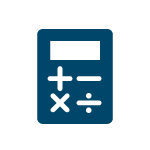REFERRAL PERKS®
Earn $100* for you and your friend for every successful referral.
Learn how an FHSA helps you save for your first home faster.
Learn which savings option is the best for your financial goals.
Explore this step-by-step complete guide to starting a business in British Columbia.
We’ve rounded up 10 of the most common scams — along with ways to identify and outsmart them.
We use cookies to personalize your browsing experience, save your preferences and analyze our traffic to improve features. By using our website you agree to our Cookie Policy.

Anyone with a mortgage wants to pay it off as soon as they can. But borrowers may be subject to extra fees, depending on your terms and payment schedule, if you pay it off outside of this pre-determined schedule.
It might sound counterintuitive. Aren’t you supposed to pay off your debts as soon as you can? Yes, but also no. Mortgages are different from other debts, and most mortgage contracts will set an amount that you can pay outside of your recurring payments without incurring a penalty.
But what if you want to pay more than this amount? You technically can, but you will have to pay an extra charge. The calculation of this charge can get complicated, so let’s explore it further.
Sometimes called a prepayment penalty or a breakage cost, a prepayment charge is a fee that your lender may charge if you:
These charges can cost thousands of dollars, so it’s important to know right from the time of signing the paperwork when they apply and how your lender calculates this amount. You should also know, you may have to pay an administrative fee on top of this charge, too.

Have an open mortgage? Good news: you can make a lump-sum payment, or even pay off your full mortgage, without a penalty.
Of course, the first best way to avoid prepayment charges is to not prepay at all. But you can prepay a certain amount of your overall mortgage balance. Your lender determines in the contract if, when, and how much you can prepay.
This amount is called a prepayment privilege. Most lenders limit the allowed prepayment amount per year, but you typically can’t carry a prepayment amount from one year to the next. What this means is that you usually can’t carry over the unused amount from the previous year into future years.
The best ways to reduce or avoid these charges entirely are:

Want to quickly see what your fees for a prepayment could be? Use our calculator to estimate what it may cost to pay all or part of your closed mortgage before the term ends.
How much you will pay for prepayment charges is determined by several factors, including:
The prepayment penalty is determined by the greater of these calculating methods:
Your lender would use the IRD method to calculate:
How to calculate the IRD
To calculate the IRD, your lender will compare two interest rates. They calculate all the interest fees left to pay on your current term for both rates, and the difference between these amounts is the IRD.
First, they use one of the following interest rates to calculate the first one:
Then, your lender can use one of the following to calculate a second interest rate:
What does this look like in action? Here’s an example from the Financial Consumer Agency of Canada.
| Mortgage balance left | $200,000 |
|---|---|
| Current interest rate | 6.00%* |
| Number of months left | 36 months (5-year term) |
*For illustrative purposes only, these do not necessarily reflect our rates at this moment. For current rates, please contact us.
Using this information, the lender looks for the current posted interest rate for a mortgage with a 36-month term offered by your lender, which is 4%.
| 3 months’ interest on the balance | $200,000 |
|---|---|
| Interest Rate Differential | $12,000 |
Because $12,000 is higher, the lender would opt for the IRD to be the amount of the fee.
Financial institutions are required to provide information on their prepayment charges, such as how they calculate it, and what factors they consider when calculating it.
Do you have any other questions about prepayments? Log in to online banking or call us at 1-888-597-1083 for details about your mortgage.
Everything is easier with a little help.
We acknowledge that we have the privilege of doing business on the traditional territory of First Nations communities.
© First West Credit Union. All rights reserved.
Proudly Canadian